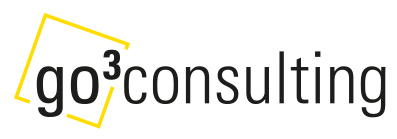“If we do it right, we might be able to evolve a form of work that taps into our uniquely human capabilities and restores our humanity. The ultimate paradox is that this technology may become a powerful catalyst that we need to reclaim our humanity.” – John Hagel, Co-Founder, Deloitte Center for the Edge
Dear all,
Artificial Intelligence (AI) is transforming the way businesses operate, and product development organizations are no exception.
In today’s hyper-competitive world, staying ahead of the curve is crucial to succeed. That’s where AI comes in – it can help streamline the product management process, uncover insights through market research, and improve decision-making with data analysis. These benefits are critical for product development organizations looking to increase their efficiency, speed to market, and overall success. By leveraging the power of AI, product teams can focus on what they do best – delivering innovative products that exceed customer expectations. AI also speeds up the development process, allowing companies to quickly iterate on products and bring them to market faster. Whether it’s reducing time-to-market or optimizing designs, AI has become an indispensable tool for product development organizations.
The above introduction to this week’s WR was crafted by Jasper, a writing tool that utilizes AI technology.
It has been pointed out by the media that AIs have a tendency to hallucinate, which prompted me to investigate the reliability of Jasper’s claims. Are thereany useful product-related AI tools beyond the coding support provided by Tabnine, Github’s Copilot, or similar?
Here are some of the more interesting findings from my recent research:
Kraftful is a tool I wish we had had in our last startup. Branding itself as the ChatGPT for user research, it summarises user feedback (e.g. from support tickets), generates top feature requests from it, allows you to chat with your data to understand them better, and even creates JIRA tickets based on these insights. The Kraftful team has in addition trained a plugin with insights from reputable product resources that help answer typical product management questions like „What is a great retention rate?“ etc. Awesome, but don’t just take my word for it. It seems promising enough for prominent investors like Google and Y-Combinator to back it.
Undeniably one of the coolest sets of tools useful for product development and -management is available from the Belgian innovation consultancy Board of Innovation. Based on prompts entered into their forms, these AI tools will provide strategic advice (choose advisor personas ranging from Sun Tzu to Rita McGrath!),write research briefs, suggest Personas, create interview scripts, suggest HMW statements, and more. Depending on your prompts, the results range from mundane to thought-provoking.
Berlin Product People’s Stefan Wolpers has trained Scrumbot, a chatbot, on his materials on Scrum and Agile. A brilliant application for anyone in the field thatprovides truly useful answers in both German and English. It’s reasonably easily replicated for your own content using either, e.g., SiteGPT or Botsonic.
One of the key aspects of product management is the ability to tell compelling stories. I’ve recently started experimenting with Tome.ai – a tool that utilizes a combination of ChatGPT and DALL*E technology to create engaging content and presentations. I’m particularly impressed by a beta feature, which can transform paragraphs of text into slide decks.
Do these results live up to Jasper’s claims in the intro? For now, it’s a clear „it depends.“ Jasper and Tome are, in most of their functions, reliable and useful. Kraftful is absolutely intriguing. The other ones hold potential but are in various stages of refinement.
But check for yourself: „AI Valley“ and „There’sanAIforThat“ are growing databases of AI tools. Additionally, if we discover any particularly beneficial tools, we will include them in the recently revamped „Schatzkiste“ (Treasure Chest) section of our website.
Have a great start to the week,
Godehard

